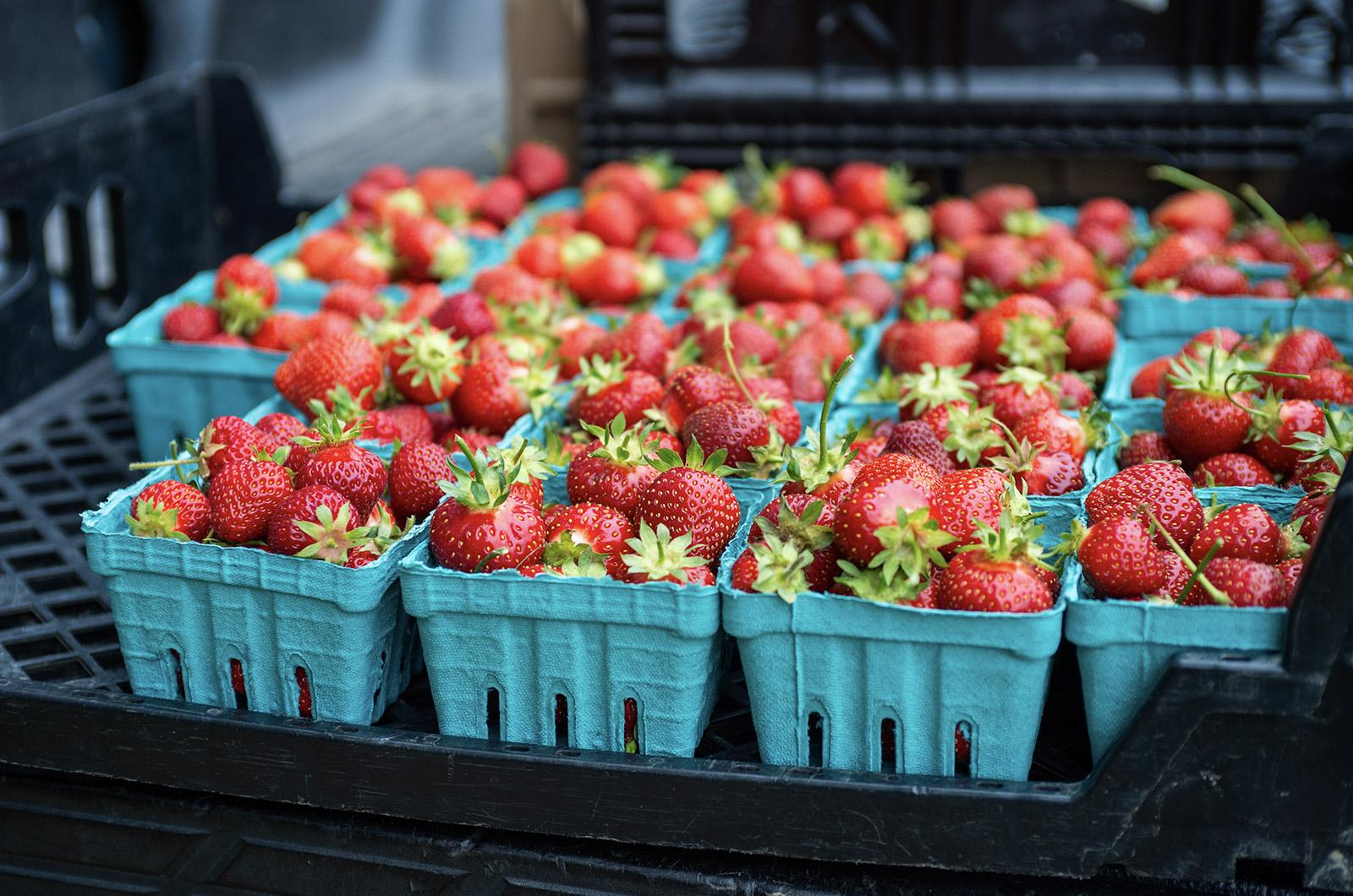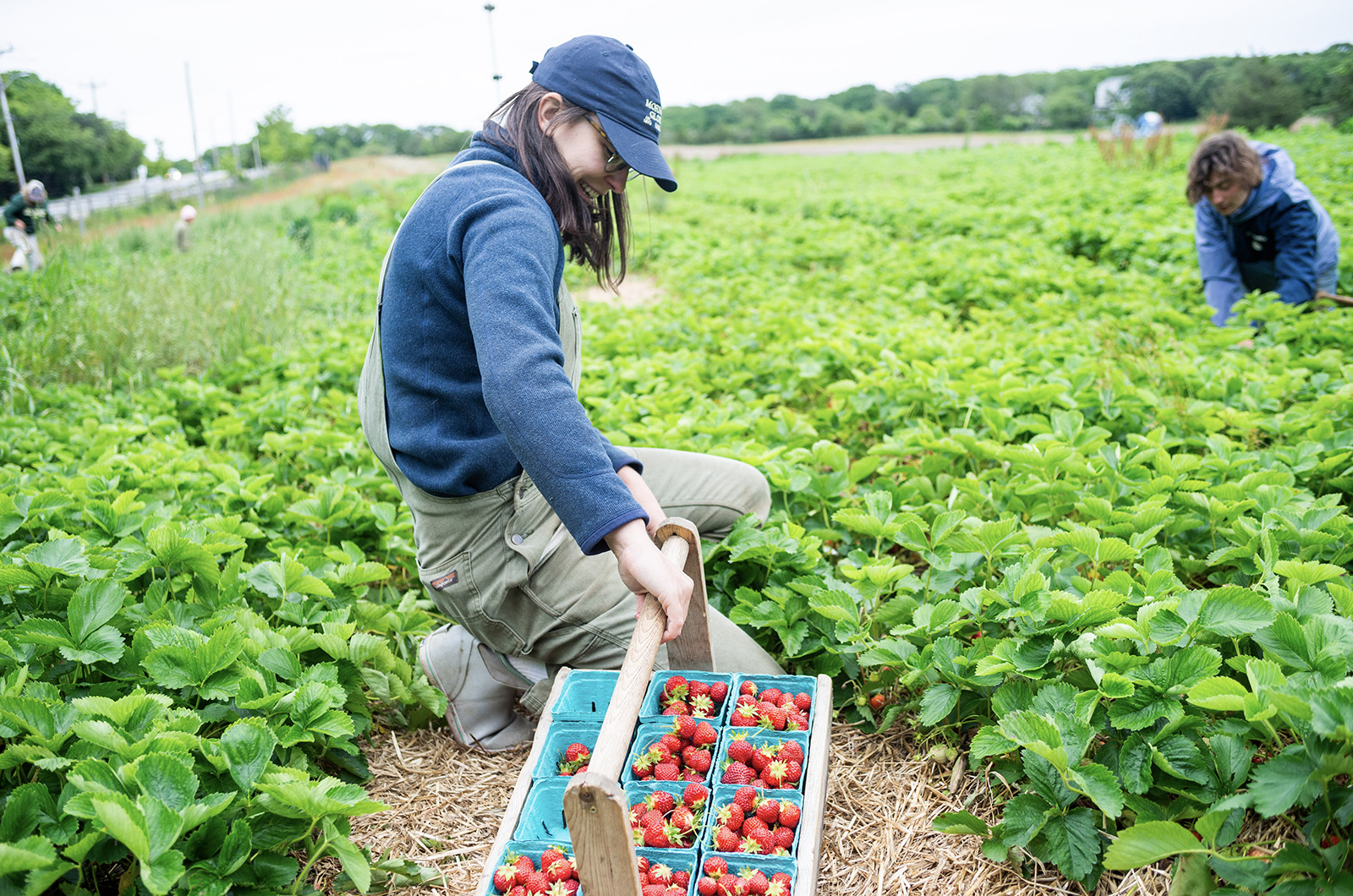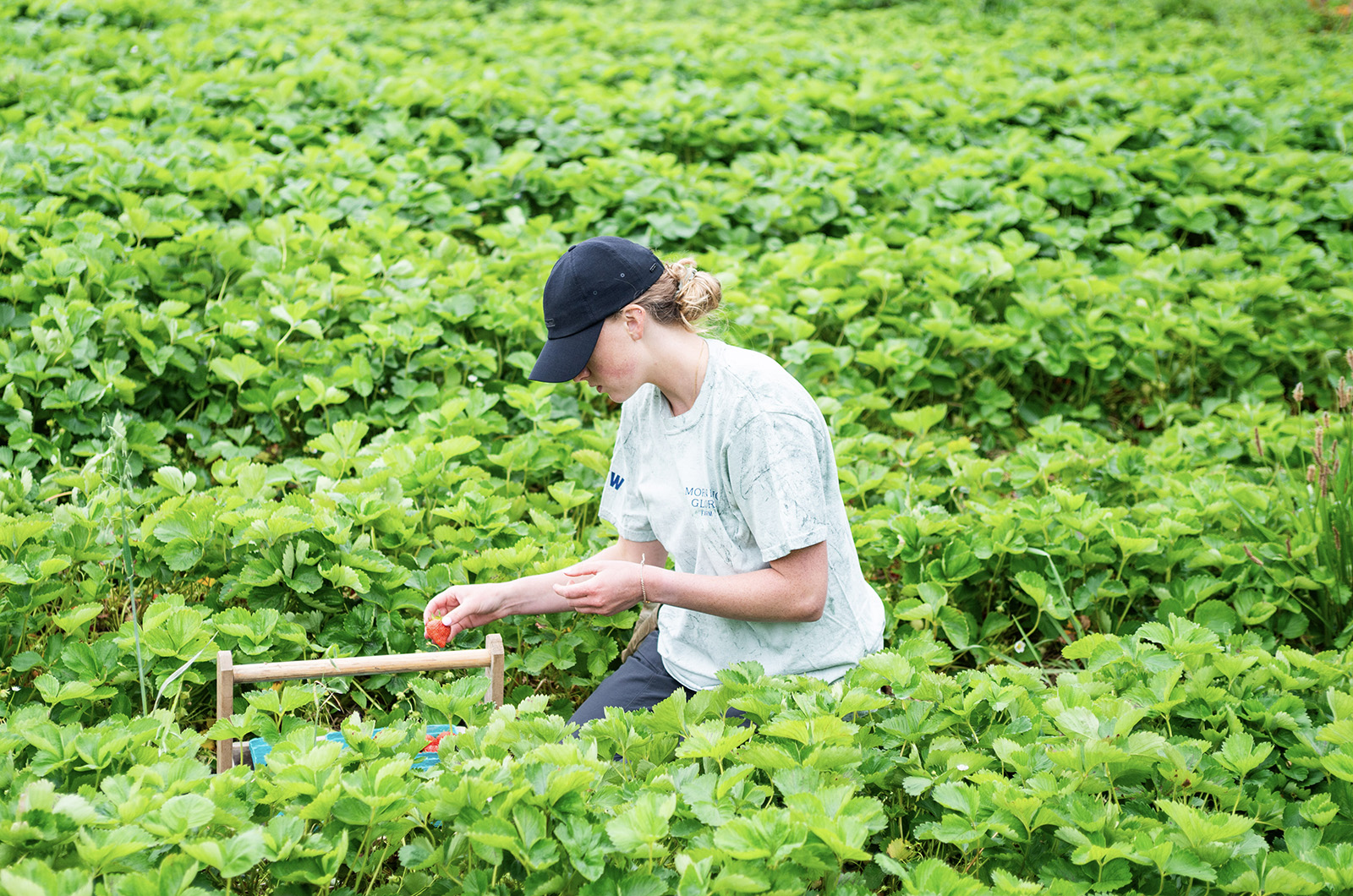The strawberry festival at Morning Glory Farm last weekend was a rainy affair, but then again it often is. The path to the farm smelled of wet chlorophyll, and cool droplets came down at a pace between drizzle and downpour.
There is no rain date for this annual event, and why should there be? Rain or shine, everyone still gathers for the shortcakes and the fiddle playing is always jaunty.
While revelers gathered at the farmstand, berry pickers, too, sought no shelter from the rain. My first-ever job on-Island was as a Morning Glory berry picker and I still remember the icy trickle of rainwater on my back, always finding a gap in even the most waterproof get-up.
But just as much as the pickers are at the mercy of the elements, so too are the berries, as moisture brings with it a proliferation of pests. Slugs, chief among the strawberry pests, descend upon the fields, chewing holes into as many fruits as they can. Mold, too, prefers damp, and can spread between fruit if not nipped in the bud. Pickers must take up the mantle of pest control, plucking any rotten berries to mitigate any blight’s spread.
I still remember the scent of the fields at the end of the all-too-short strawberry season, the cloying smell of pestilent berries fermenting in the sun. By the end of the summer, all my pants were stained red and the phantom sensation of soggy straw poking my knees lingered for days.
But the absence of wet is no surety of success. As Morning Glory Farm owner and chief operating officer Dan Athearn explained, not all strawberry pests are moisture related.
“Catbirds are taking tasty morsels and turkeys always peck around,” he said.
And for all the sensual displeasure a wet field might bring, it has its advantages against to the alternative — a dry, crispy field in drought. Last summer’s drought conditions, Mr. Athearn said, led to losing a portion of the strawberry crop where irrigation faltered.
Not too wet, not too dry, strawberries require fine tuning. Farmers plan down to the month when it comes to proper berry-field moisture.
“If we get a deluge, then the season is short, and ripe berries can rot on the plant,” Mr. Athearn said. “But if it’s sunny and all season it stays dry, then the berries last until the Fourth of July.”
All in all, though, Mr. Athearn said it’s been an average season. Challenges always arrive, but “every vegetable wants every opportunity to thrive,” he said.
Even against mold and catbirds and turkeys and slugs, most of the berries grasp that opportunity.
And when it comes to the weather, there is little sense in fretting about inscrutable forces beyond our control. Written in Greek 1,700 years ago, the Orphic Hymn addressed to Nature captures well our condition of powerlessness: “You swirl a swift stream with ever-flowing eddy, all flowing, cyclical, always changing your form. Firmly enthroned, esteemed, you accomplish what you decide.”
For now, enjoy those moments of cool drizzle when they come, along with a strawberry while the season is still here.










Comments
Comment policy »